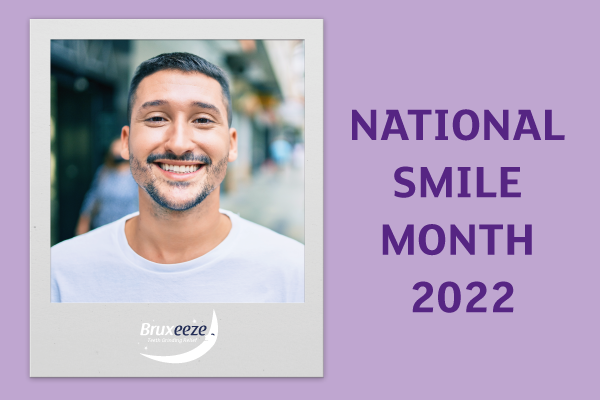So if you want to keep your teeth glistening, and your gums in great condition, then read on…
The importance of good oral care
Our teeth play an important role in our day-today lives. From helping us chew and digest food, to giving us confidence to speak in social surroundings. They are also closely linked to our physical health. The mouth is the gateway to the rest of the body, with food and drink first coming into contact with our teeth. Let’s explore the benefits of great dental hygiene.
Reduce the risk of disease
Gum disease can result in a higher chance of a heart attack. If the bacteria from our mouth gets into the bloodstream, it produces a protein. This causes the blood to thicken, meaning clots are more likely to form. The heart then doesn’t get the nutrients and oxygen it needs.
Another risk is the possibility of a stroke. Gum disease can cause inflammation of the blood vessels, blocking the blood supply to the brain.
Maintain your appearance
Want to stay clear of bad breath (halitosis)? This undesirable quality is often caused by a build-up of plaque, and is a symptom of gum disease and tooth decay.
Another common condition is tooth staining. Although not harmful to our health, it may leave us feeling self-conscious. This condition is natural and is often linked with smoking, or drinking lots of tea, coffee or red wine. You can prevent this with regular cleaning, or by contacting a dental professional to tackle more severe stains.
Lower the risk of cancer and dementia
If we keep our teeth and gums healthy, we’re more likely to reduce our risk of certain cancers, especially in women, as well as some forms as dementia.
A study that examined data from 65,000 post-menopausal women between the ages of 54 and 86, found that those with a history of gum disease were 14% more likely to develop cancer. Of these, one in three developed breast cancer while there was also a highly increased risk of lung cancer, oesophageal, gall bladder and skin cancers.
Keep your teeth for life
The trick for preventing tooth loss? Brush your teeth twice a day, have a low sugar diet, and regularly visit a dental professional. This will prevent tooth decay and gum disease. If you maintain a good daily oral health routine, there’s no reason why you shouldn’t be able to keep your teeth for life.
Another way to maintain a healthy mouth, is to look out for any unusual changes to your teeth or gums. In some cases, you may be suffering from a more serious condition than poor oral care. Bruxism for example can cause great damage to your teeth in severe cases.
What is bruxism?
Bruxism is a medical term for grinding or clenching your teeth. The condition is more common than you may think, affecting up to 31% of the general population.
There are two main types of bruxism: nocturnal bruxism and awake bruxism (this one occurs during the daytime). Nocturnal bruxism is a condition in which you excessively grind your teeth or clench your jaw during sleep. As you’re not awake, these actions are unconscious, so it’s harder to control.
The symptoms of bruxism
You may not notice that you suffer from bruxism if you grind your teeth whilst asleep. That’s why it’s important to look out for any symptoms which could include:
- Worn-down teeth
- Headache
- Earache
- Increased tooth sensitivity
- Sore jaw muscles
- Broken teeth or fillings
Why you should treat bruxism
Bruxism can affect people in many ways. Some sufferers may experience short-term issues, that disappear when they stop grinding their teeth. This can include waking up with a headache, aching jaw muscles and inflamed gums.
However in severe cases, the effects can be long-term or even permanent. Many bruxism sufferers also experience Temporomandibular Joint Disorder (TMJ). This condition can cause pain and reduced movement of the jaw. They may also experience damage to their teeth, restorations, crowns or jaw.
How to treat bruxism
Start off by making lifestyle changes that could be causing you to grind your teeth. Smoking and alcohol are both associated with a higher risk of bruxism. Why not grab a friend also looking to reduce their intake, and support each other?
With nearly 70% of bruxism cases occurring as a result of stress or anxiety, this is another important factor to consider. If you feel stressed, try taking a walk to clear your mind, or speak to someone you feel comfortable with. You may want to visit your doctor if you’ve been feeling anxious for a while, as forms of therapy (such as CBT) can be beneficial in reducing stress and anxiety.
If these changes don’t have an effect, using a night guard can offer great protection from grinding and clenching. They work by preventing your upper and lower teeth from grinding against each other.
Which night guard should you go for?
With a mission to protect teeth against every level of grinding, Bruxeeze offers a range of self-fit and custom-fit night guard options.
Custom-fit
Bruxeeze Pro Extra Night Guard – Offers an additional level of comfort than the Pro. 3mm thick and a perfect guard to treat moderate-to-heavy bruxing.
Bruxeeze Pro Night Guard – Provides heavy-duty protection from the impact of teeth grinding and clenching with a thickness of 3mm.
Bruxeeze Slim Fit Night Guard – Ideal for first-time wearers and mild bruxers. 1.5mm thick with a discreet and almost invisible fit. Also a good choice for daytime bruxers.
Self-fit
Bruxeeze Self Fit Night Guard – Immediate and effective relief from teeth grinding symptoms. Easily moulded at home to fit your teeth in under 5 minutes, it can be worn on either your upper or lower teeth.
Take care of your oral health and protect your smile. National Smile Month takes place May 17th-June 16th 2022, with the theme “everyone deserves a healthy smile”. For more information, visit: https://www.dentalhealth.org/national-smile-month

